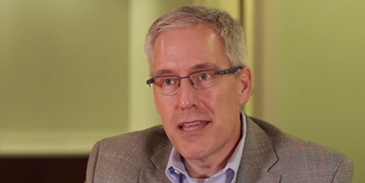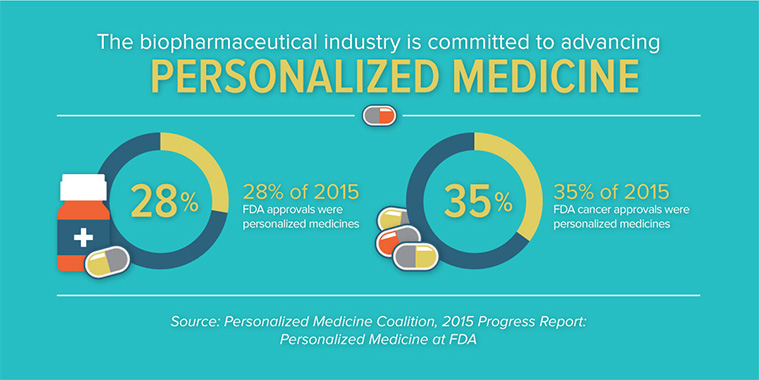In Some Cases, A Medicine Can Work Well for One Patient, but Not Another with the Same Disease. With Personalized Medicine, Biopharmaceutical Industry Researchers like Dr. Bernie Zeiher are Unlocking the Reasons Why. The Promise? Improved Patient Outcomes.
The human body is extremely complex. A drug therapy may work for one patient, but not another with the same disease. This is one reason why we need numerous treatment options for diseases like cancer. Advancements in science contribute to today’s understanding: a patient’s response to treatment is greatly dependent upon his or her molecular profile. Biopharmaceutical researchers are at the forefront of using this new understanding to improve patient care.


